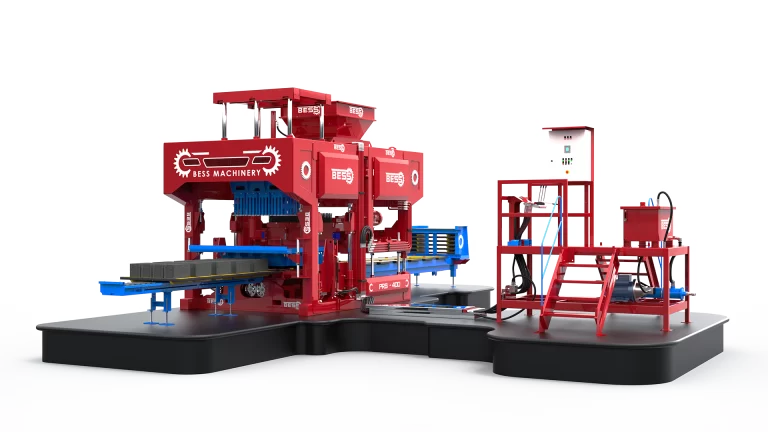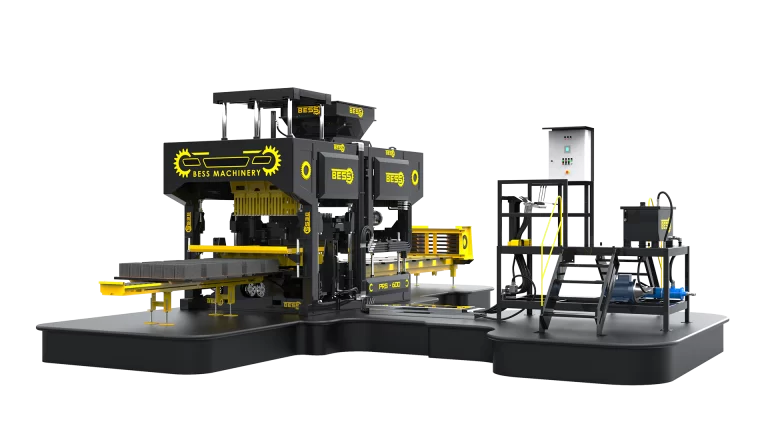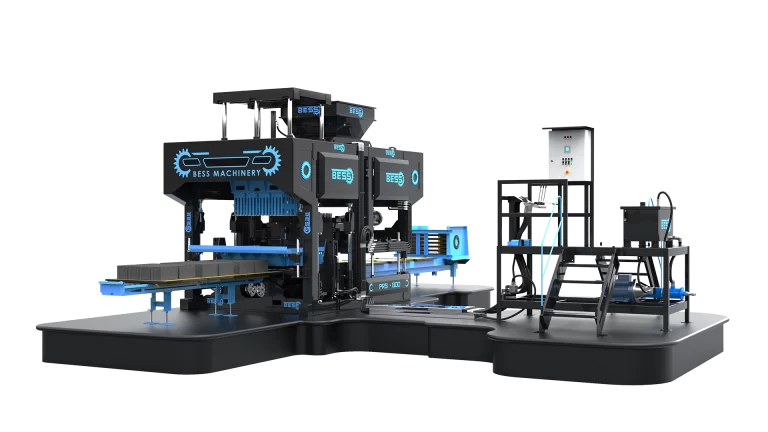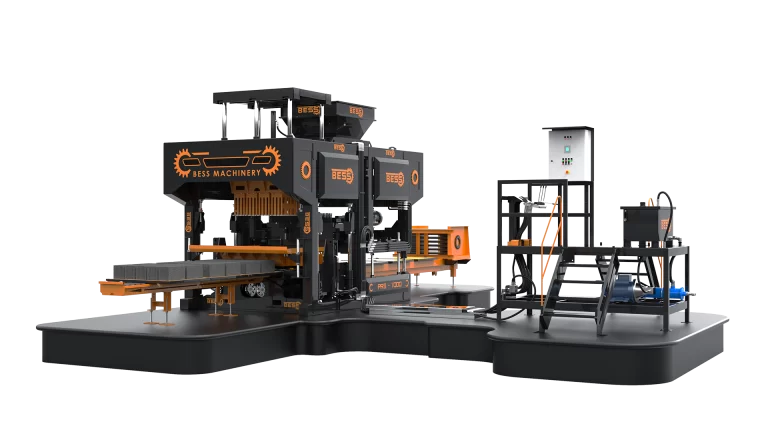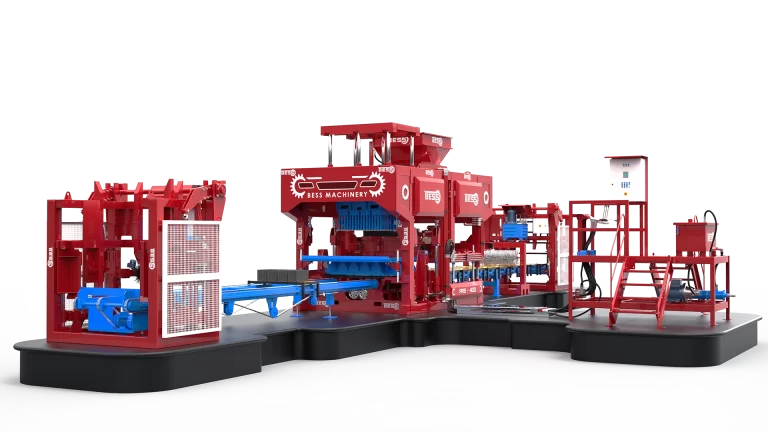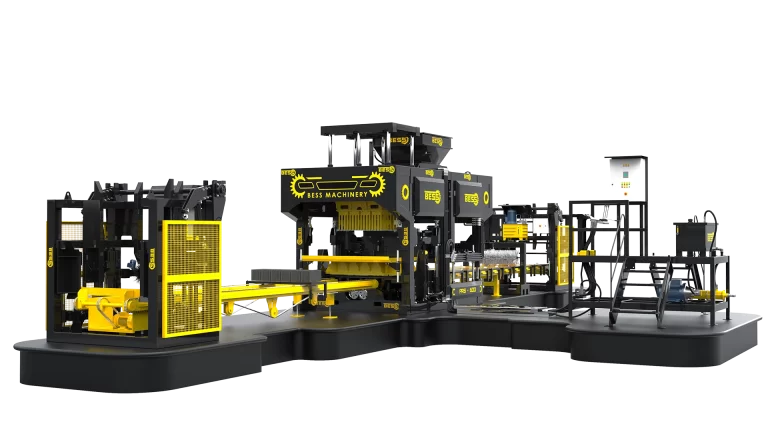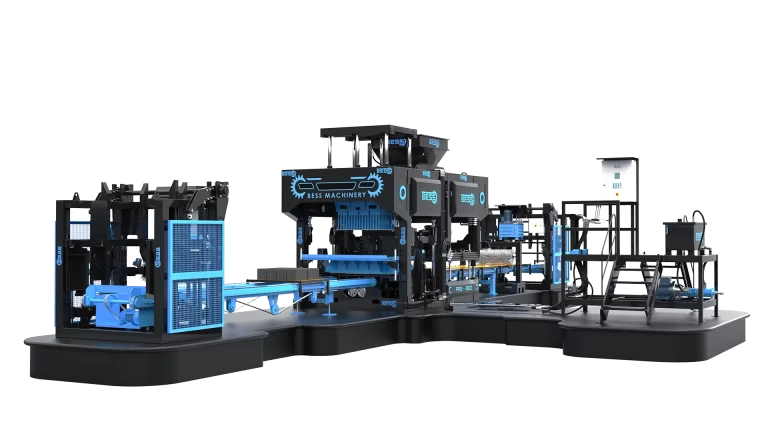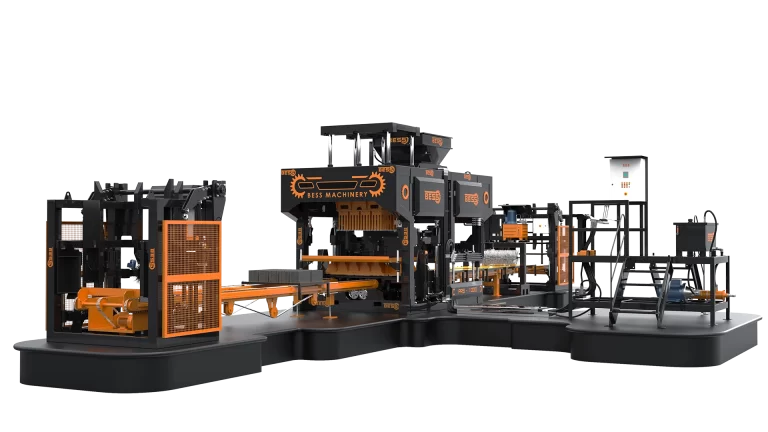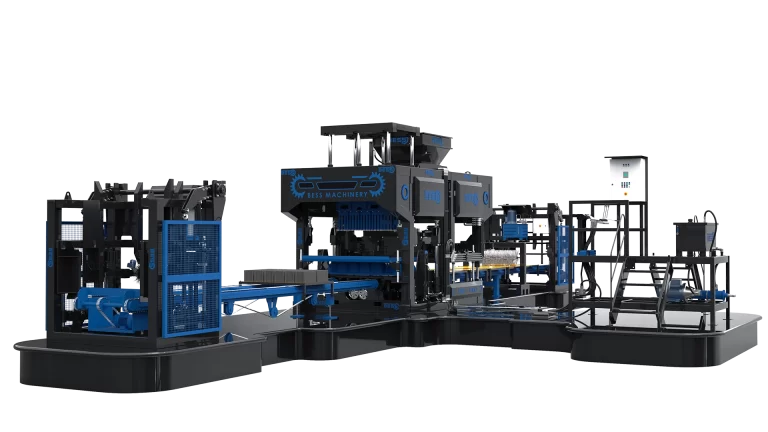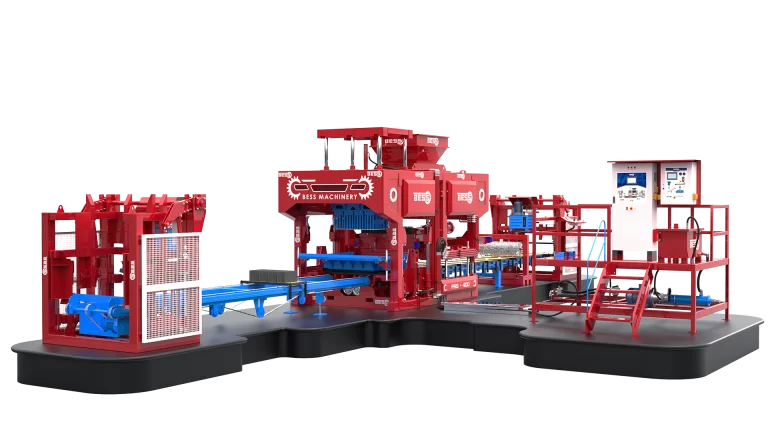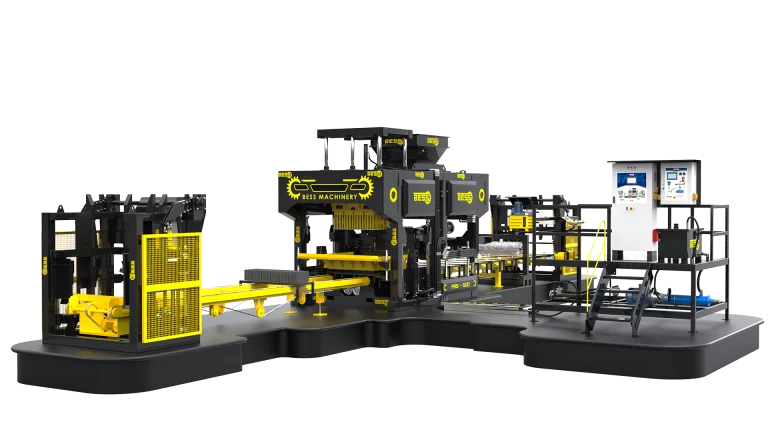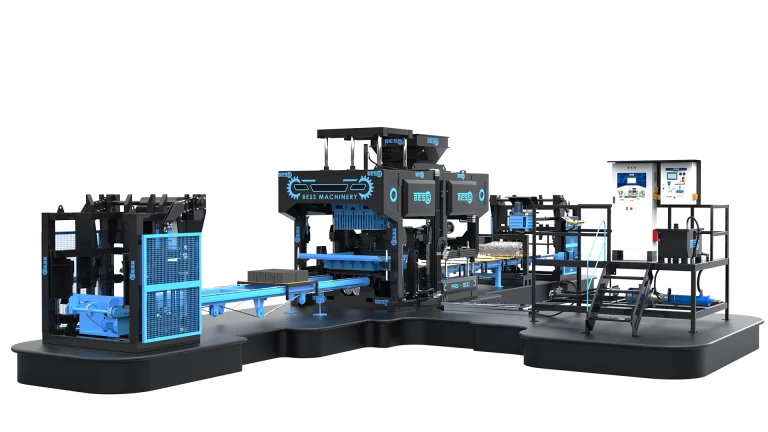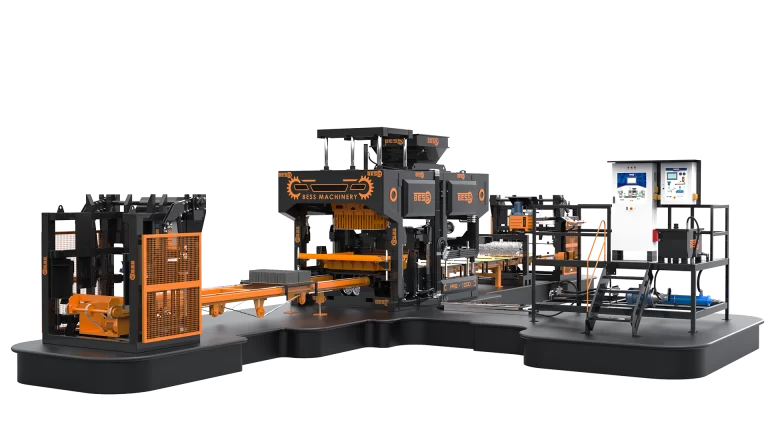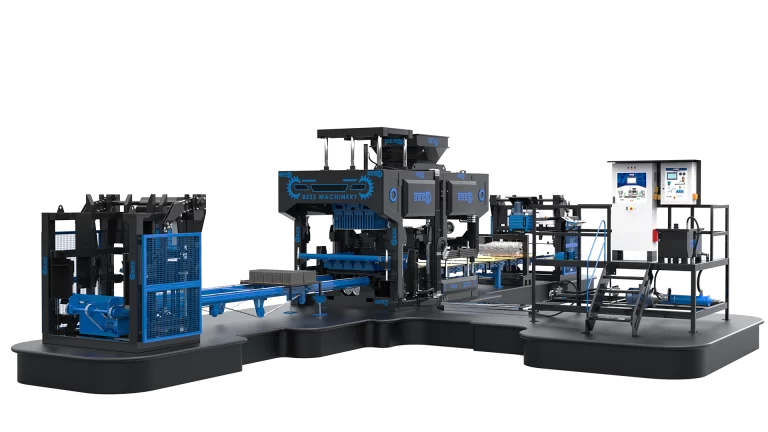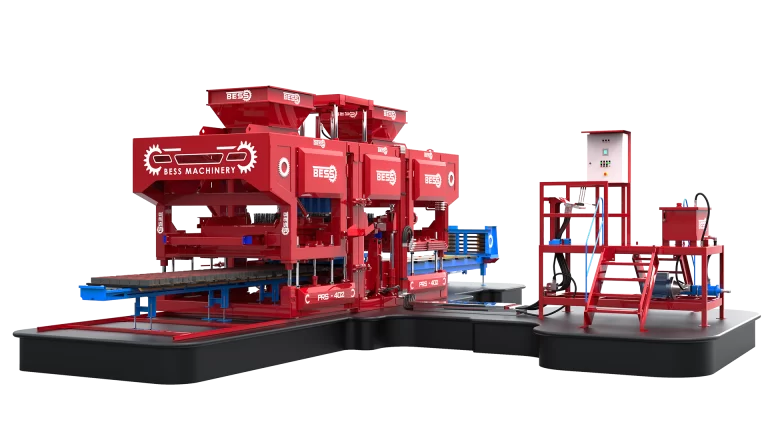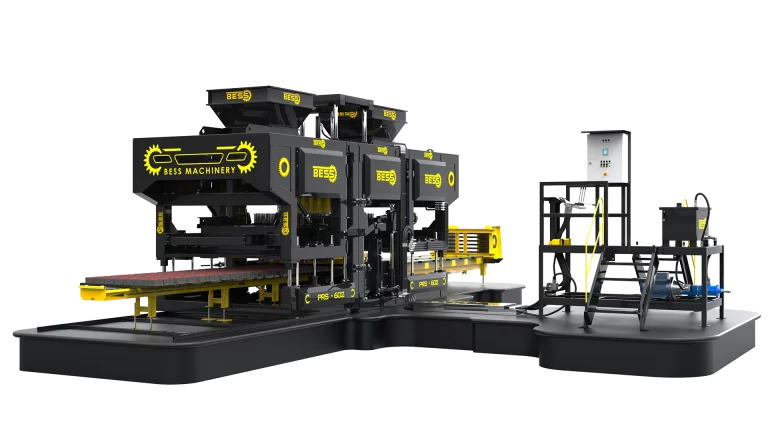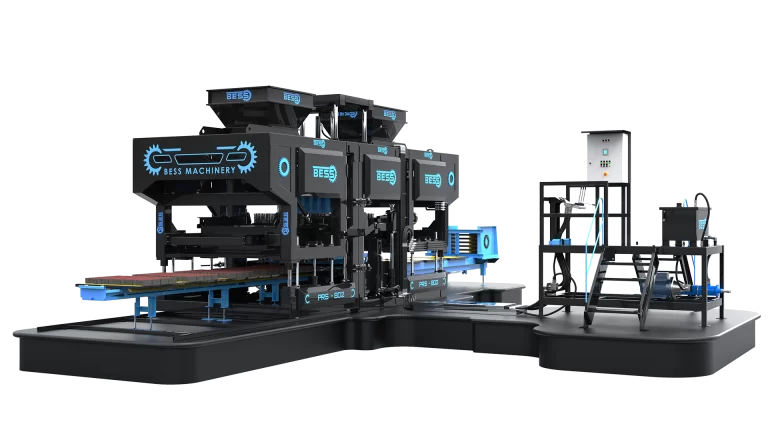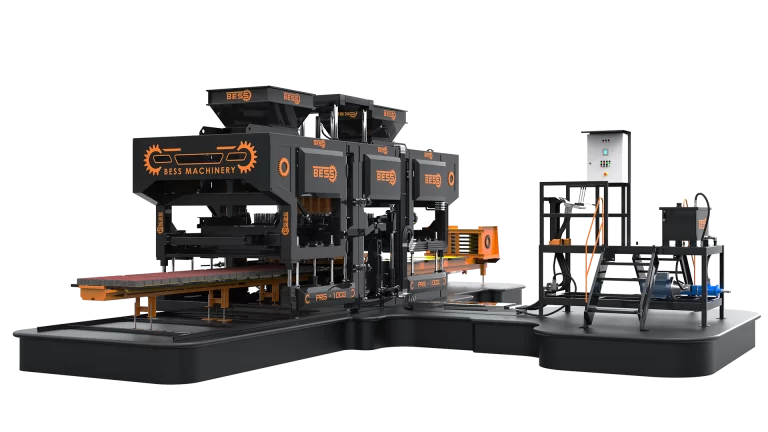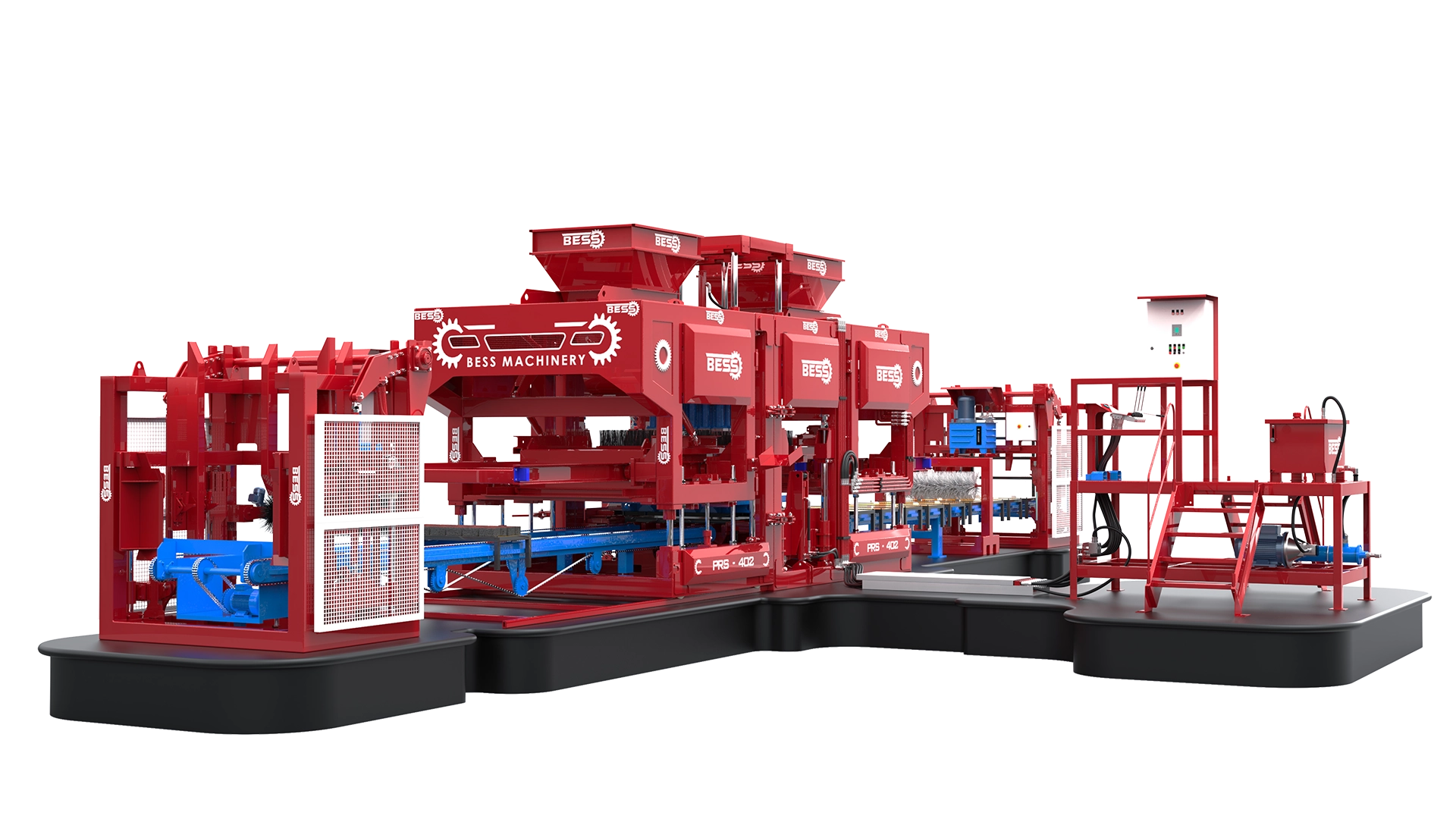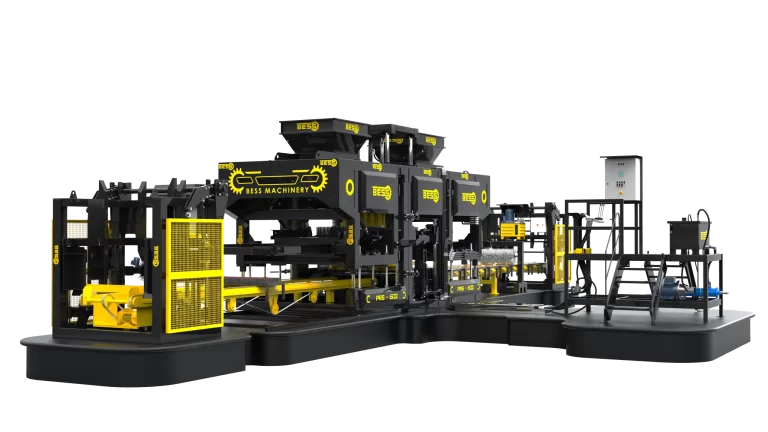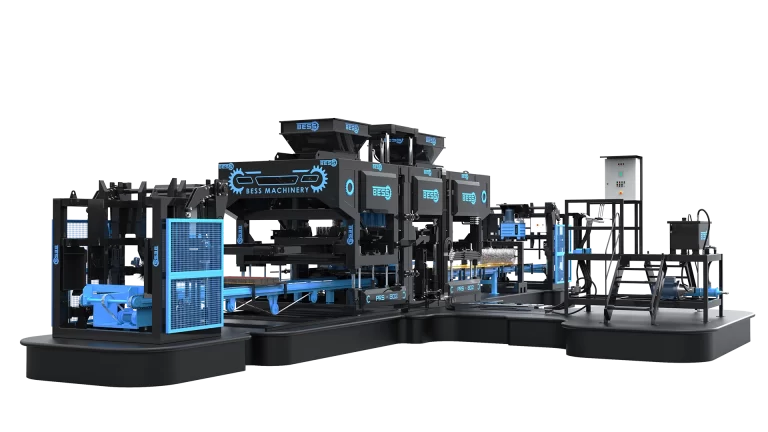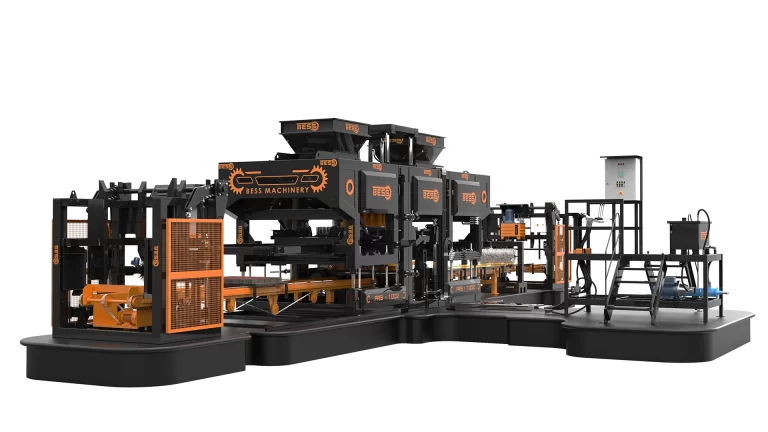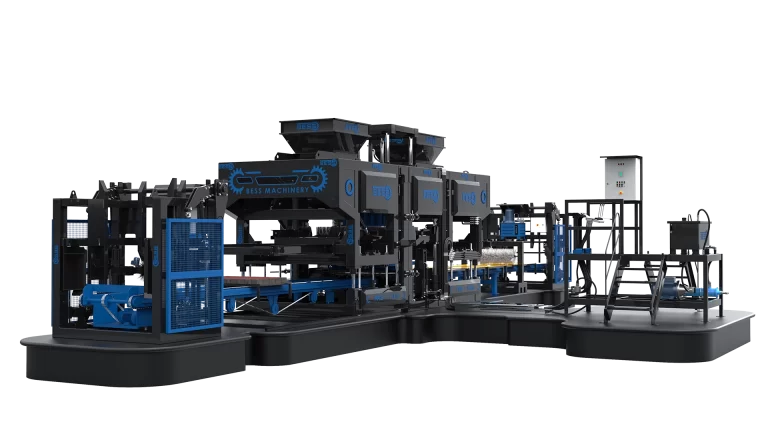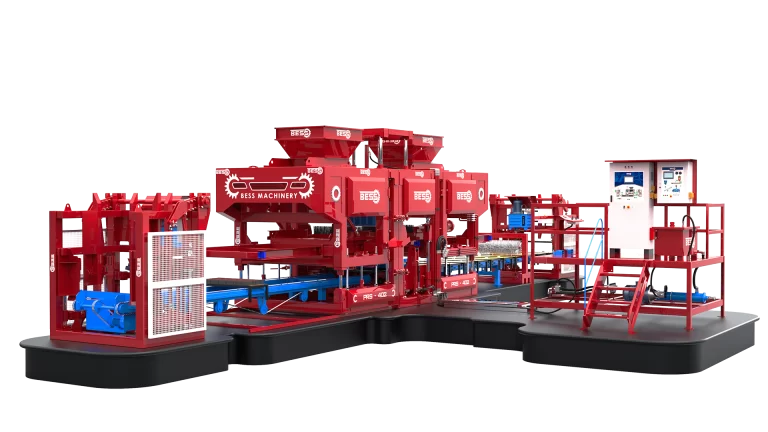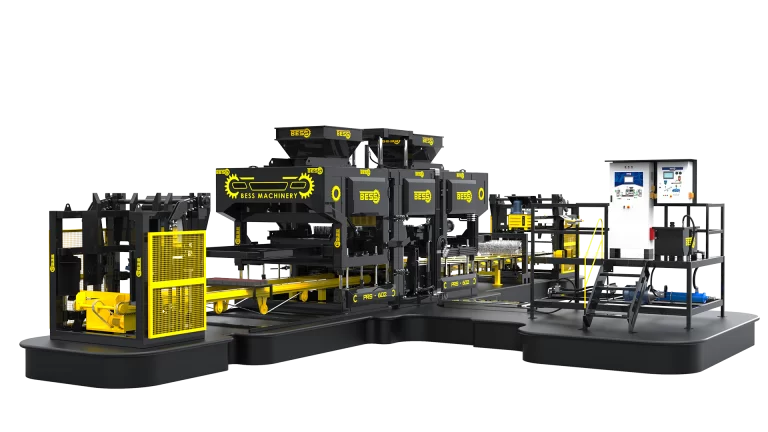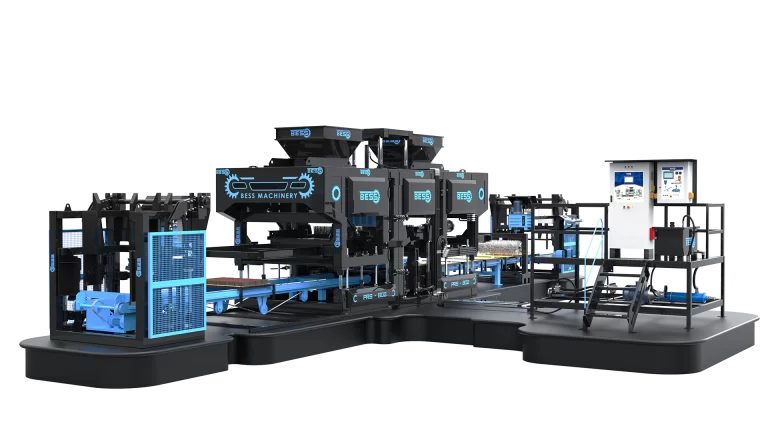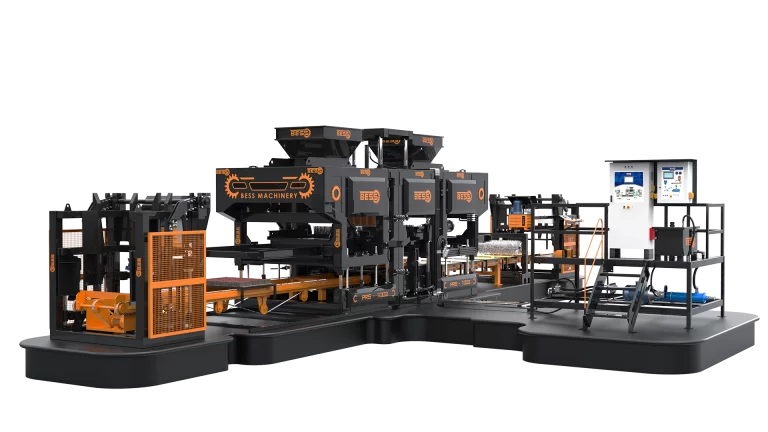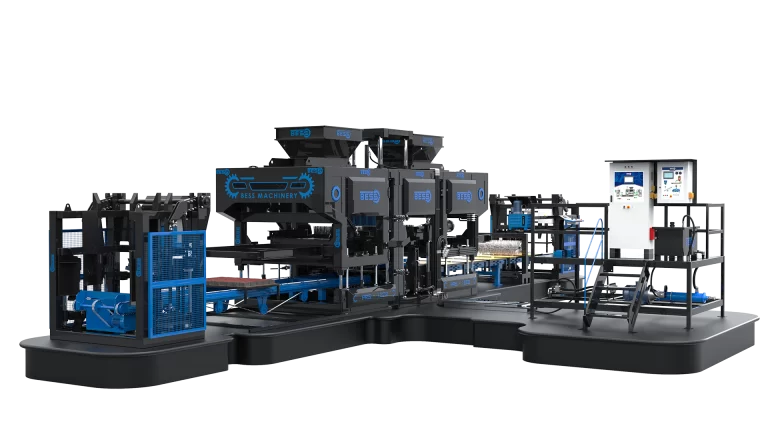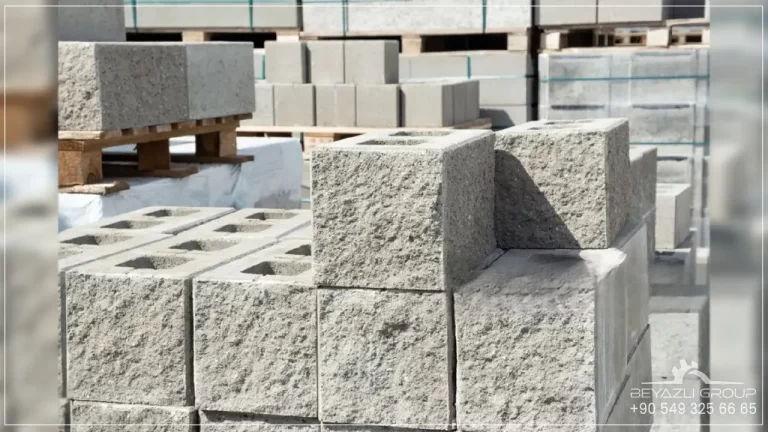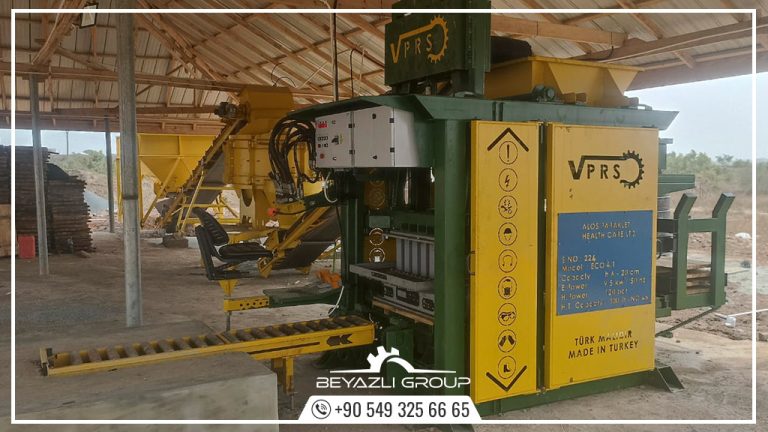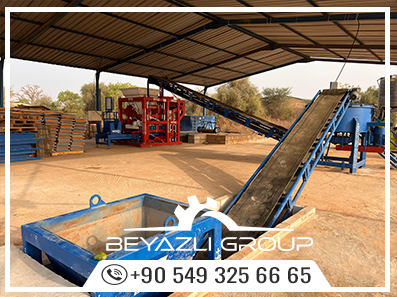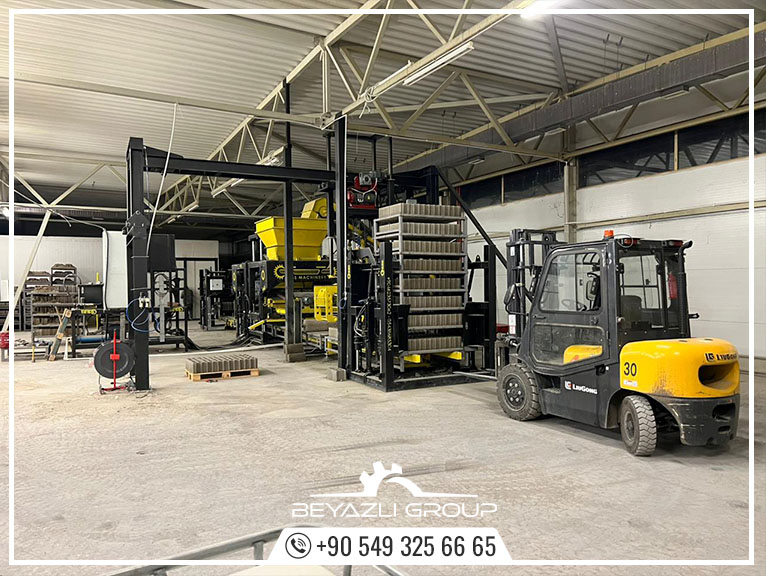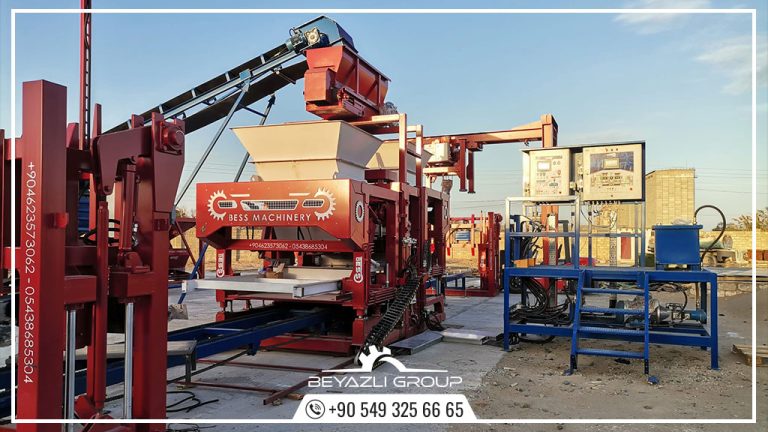Concrete block machines are widely used in the construction field to produce different types of blocks. The process is to apply vibration and pressure to the mold to produce these blocks. Now coming to the main point, what kind of blocks can you produce with your concrete block machines?
This of course depends on the machine and its design. Considering the Bess series as a reference, we will cover the 10 different block types you can produce using concrete block machines.
Hollow Blocks
The most common type of product is hollow block. Hollow blocks are produced in different shapes and sizes. the length is most of the time 40cm. the height is 20cm. the changing part is mostly the width. the most common ones are 10cm, 15cm, and 20cm.
20x40x20cm hollow blocks are called 20cm blocks or 8-inch blocks and they are the most common blocks in the construction industry due to their lightweight nature and structural efficiency.
These blocks are ideal for building both load-bearing and non-load-bearing walls, offering a good balance of strength and reduced material weight. Their hollow cores provide better insulation against heat and sound, making them a popular choice for residential and commercial building projects where thermal and acoustic insulation is important.
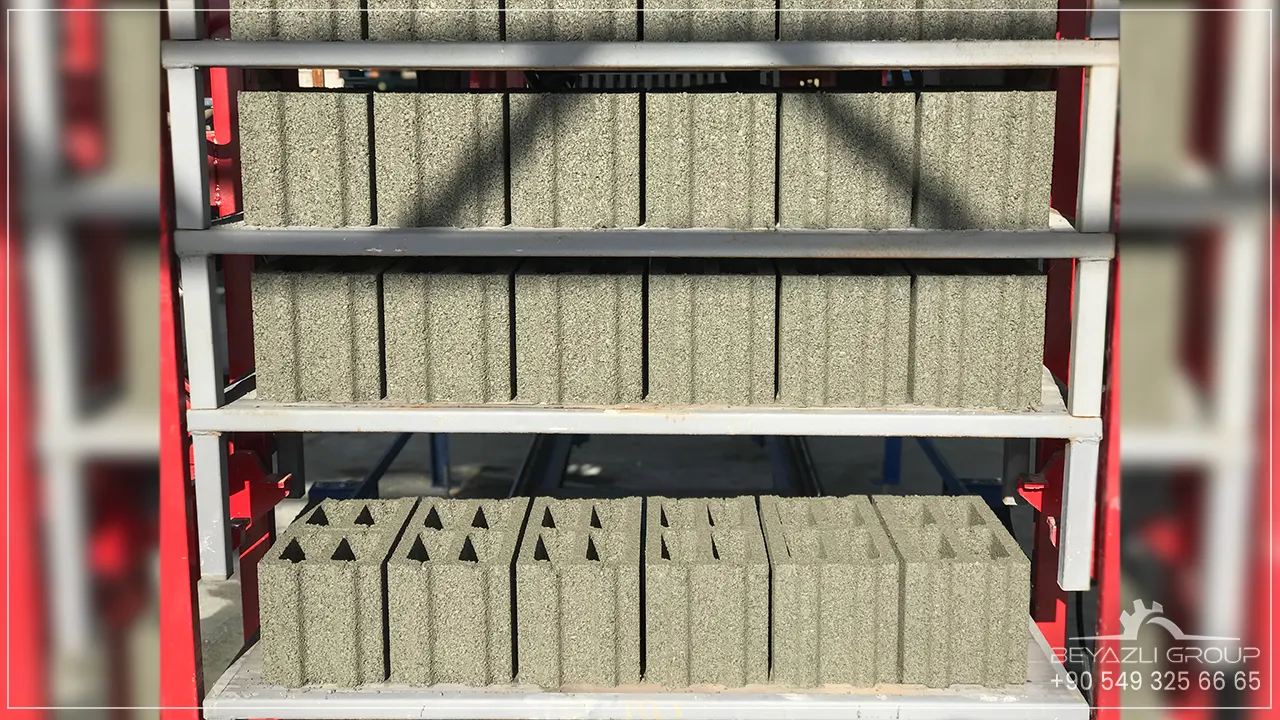
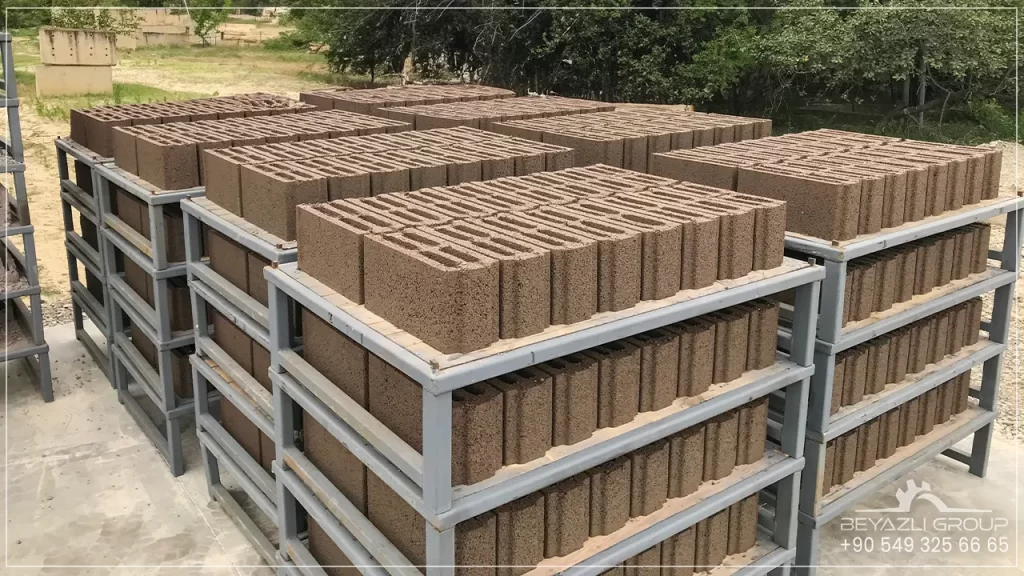
15x40x20cm blocks are called 15cm blocks or 6-inch blocks, they have a wide use in building walls.
These blocks are commonly used for building non-load-bearing partition walls, where their lighter weight allows for easier handling and quicker installation. They also offer good thermal and sound insulation due to the air pockets within the blocks, making them an efficient choice for residential and commercial buildings that require energy efficiency and noise reduction.
10x40x20cm blocks are called 10cm blocks or 4-inch blocks and they are used widely in construction projects where a lightweight and space-efficient material is needed.
These blocks are ideal for building non-load-bearing partition walls, offering a practical solution for dividing interior spaces without adding excessive weight. In addition to partition walls, these hollow blocks are used in constructing boundary walls, especially when a slimmer profile is desired. The cavities within these blocks can also be filled with reinforcing materials like concrete or steel to enhance their strength.
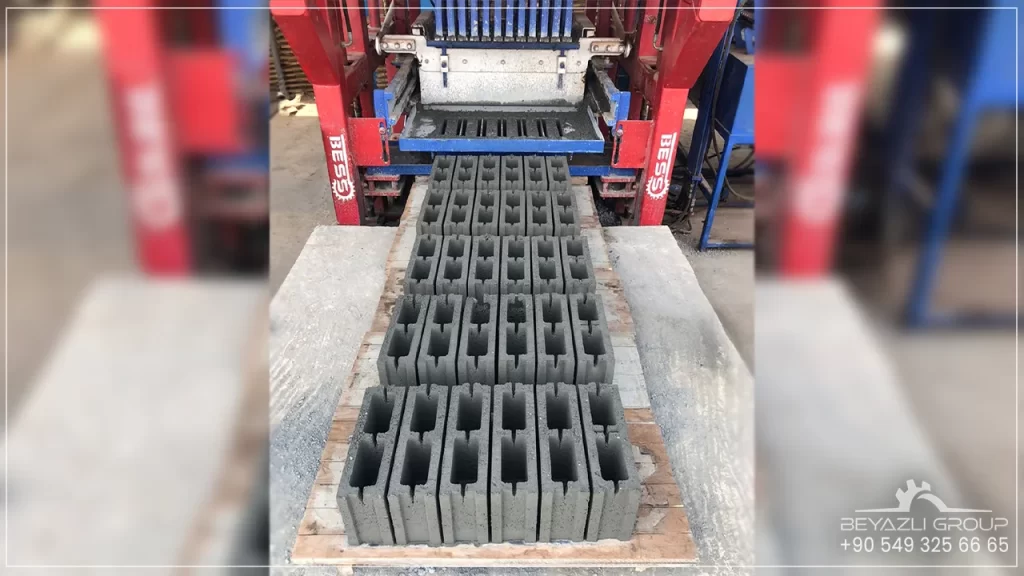
Solid Blocks
Solid blocks are widely used in construction due to their durability, strength, and versatility. They are ideal for constructing load-bearing walls and for providing robust structural support in both residential and commercial buildings. Their strength makes them suitable for building retaining walls that hold back soil and prevent erosion, as well as boundary walls for security and privacy. Additionally, solid concrete blocks are used in the construction of foundations, pillars, and columns, ensuring a stable base and structural integrity.
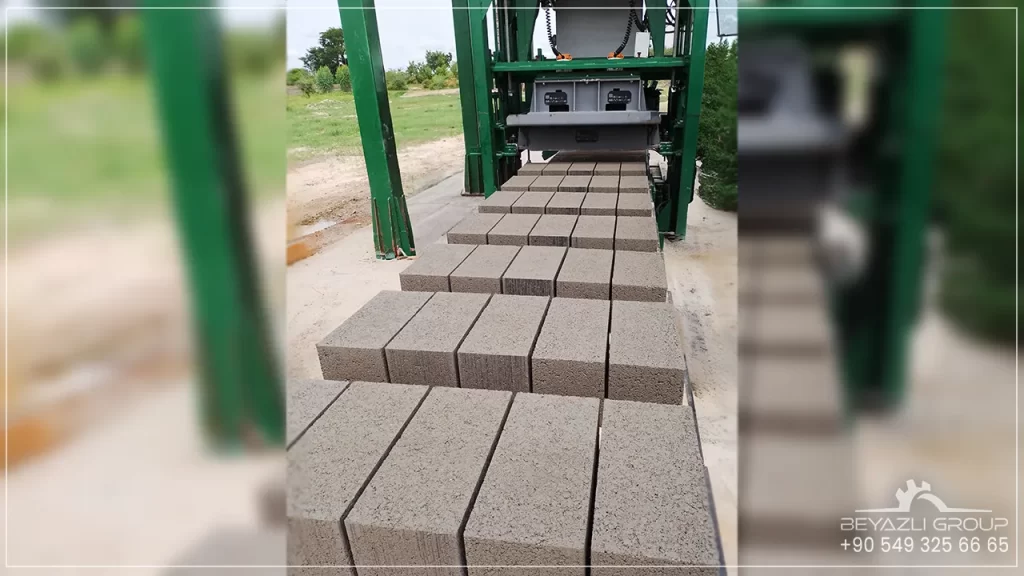
Solid blocks with dimensions of 20x40x20 cm can be used in many different construction applications like load-bearing walls, retaining walls, boundary walls, and foundations.
In foundation work, these blocks provide a stable and durable base, ensuring the longevity and strength of the structure. Their robust nature also makes them suitable for building pillars, columns, and even landscaping features such as garden walls and planters. Overall, these solid blocks are a reliable choice for a wide range of construction and landscaping applications.
15x40x20cm solid blocks are frequently used for creating partition walls, offering an efficient solution for dividing spaces within a structure. Additionally, these blocks are suitable for constructing boundary walls, offering a secure and solid barrier around properties. In landscaping, 15x40x20 cm solid blocks can be utilized for garden walls, planters, and other decorative features. Their shapes and strength make them a reliable choice for various building and landscaping projects.
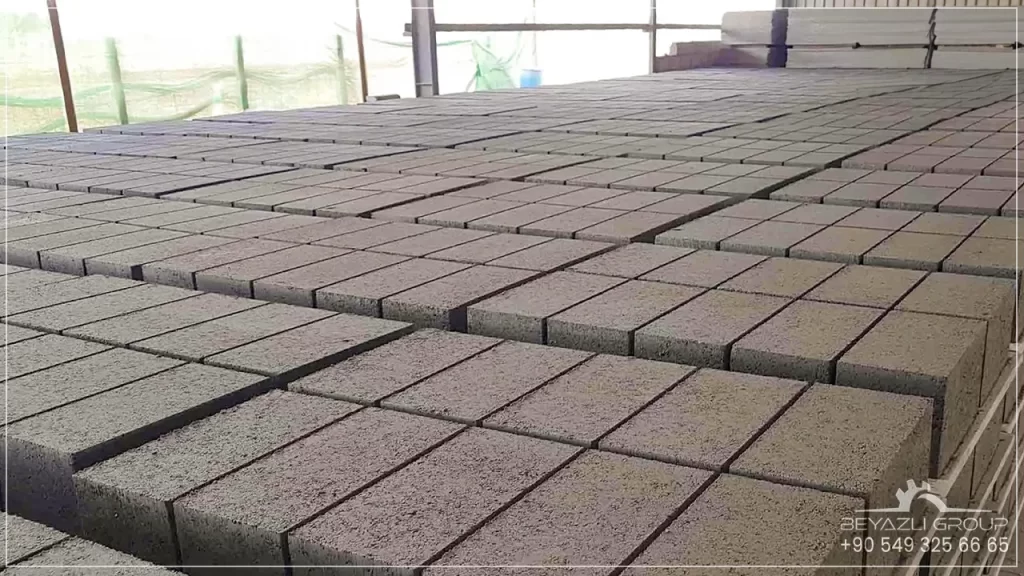
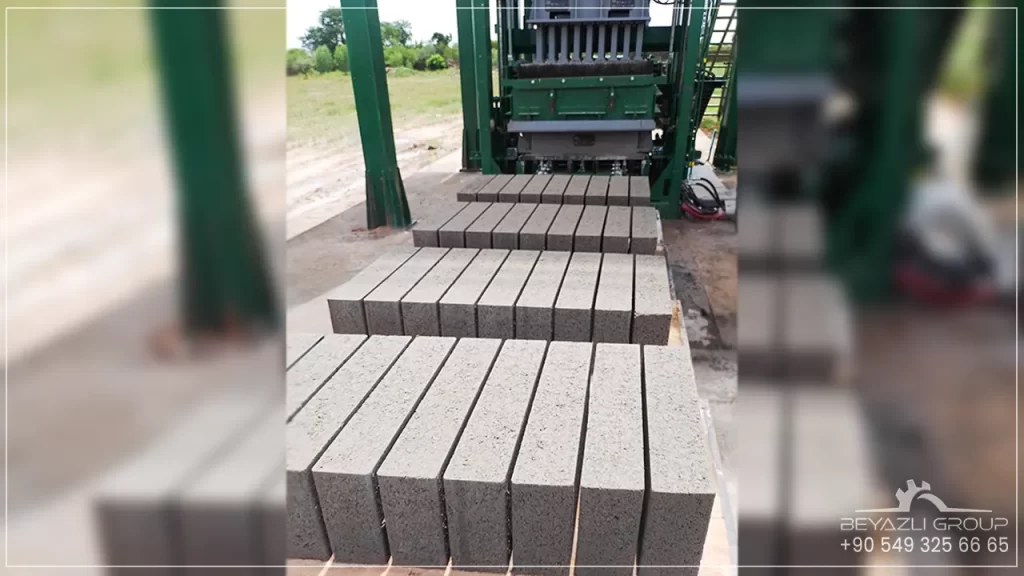
Solid blocks with dimensions of 10x40x20 cm are particularly useful in construction projects where a balance of strength and space efficiency is needed. These blocks are commonly used for non-load-bearing partition walls, allowing for the effective division of interior spaces in residential and commercial buildings without adding unnecessary bulk.
In addition to these uses, 10x40x20 cm solid blocks can be employed in the creation of garden walls, planters, and other decorative landscaping features where a thinner profile is desired.
Paving Blocks
Paving blocks, also known as pavers, are durable, pre-cast concrete units used to create paved surfaces. These blocks are designed in many different shapes, sizes, and colors, allowing for Flexible and visually appealing designs in landscaping and construction projects. Paving blocks are commonly used for creating driveways, walkways, and patios, because of their strength and ability to withstand heavy traffic. They are also used in commercial spaces, public parks, and streetscapes to create visually appealing and functional surfaces. Beyond their durability, paving blocks are valued for their ease of installation, low maintenance, and ability to be easily replaced if damaged.
Below are a few popular shapes of paving blocks that you can produce with the concrete block machine.
Curbstones
A curbstone, also spelled as kerbstone in British English, is a rectangular block made of concrete and it serves as a physical and visual boundary between different surfaces, such as the separation between a roadway and a sidewalk or between different sections of a landscape.
there are different uses to curbstones:
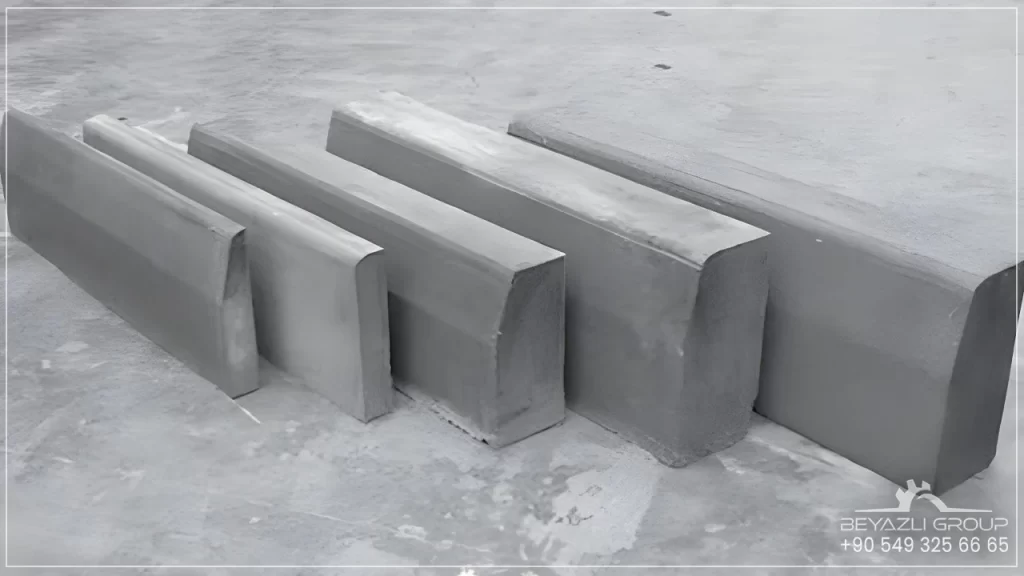
Road and Pavement Edging
Curbstones are commonly used to define the edges of roads, sidewalks, and pedestrian paths. They help in separating the pavement from the roadway, providing a clear boundary for vehicles and pedestrians. The size height of these blocks is mostly 30cm with different lengths.
Landscape Design
In landscaping, curbstones are used to create clean, defined edges around flower beds, gardens, and lawns. They help prevent soil erosion and keep different areas of a garden or yard separated. These curbstones are mostly 20cm in height.

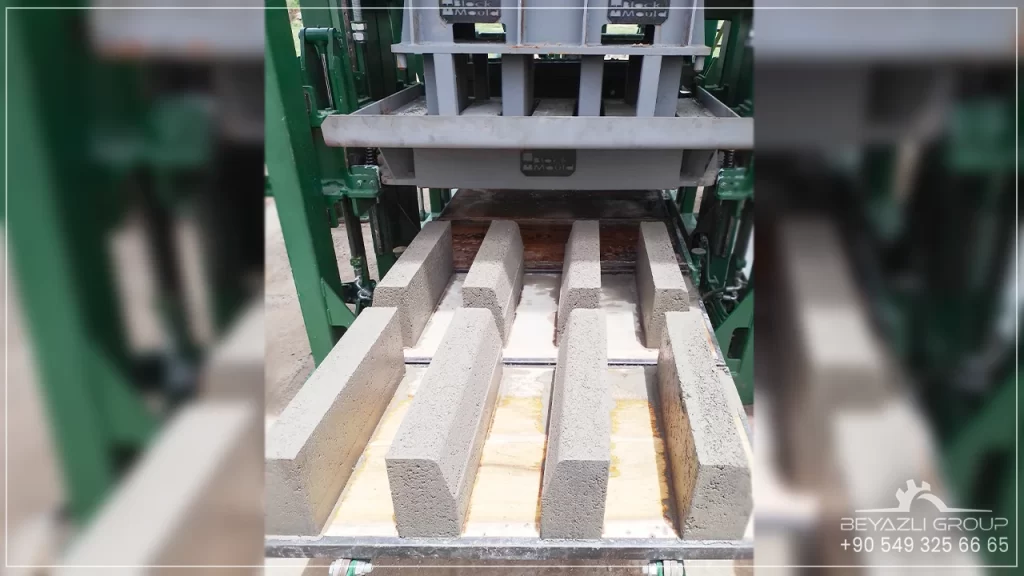
Water Management:
Curbstones play a critical role in managing water flow. They help direct rainwater to drainage systems, preventing water from flooding pedestrian areas and maintaining the integrity of roads.
Traffic Control:
Curbstones can be strategically placed to control traffic flow, guiding vehicles and preventing them from entering restricted areas, such as pedestrian zones.
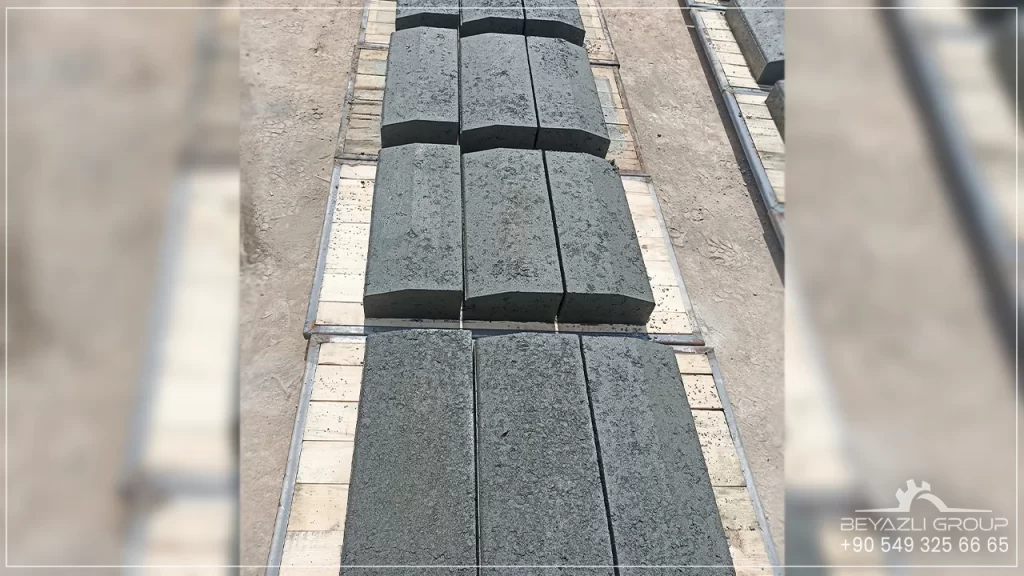
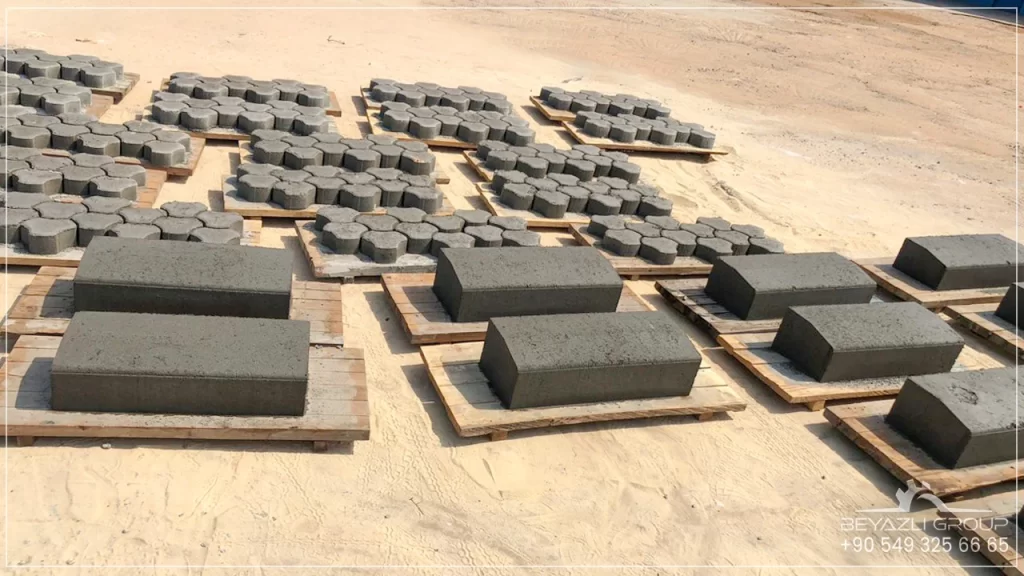
Aesthetic Appeal:
Curbstones can enhance the visual appeal of urban spaces by providing a neat, organized appearance. They are often used in decorative patterns or designs to complement the overall aesthetic of public spaces.
Styrofoam Concrete Blocks
styrofoam concrete blocks also known as polystyrene blocks can also be used in the block production. these blocks are very light weight and provide excellent thermal and sound isolation.
there are generally 2 types of styrofoam concrete blocks that you can produce using concrete block machines:
- Using expanded polystyrene (EPS) beads in the mortar
- Using a styrofoam mold on the machine and pour concrete on both sides of it
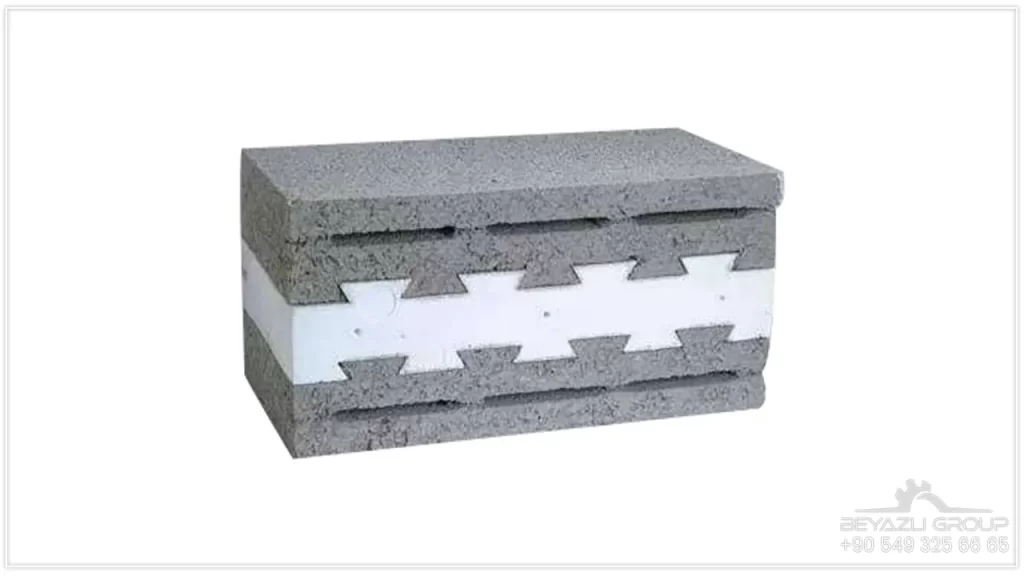
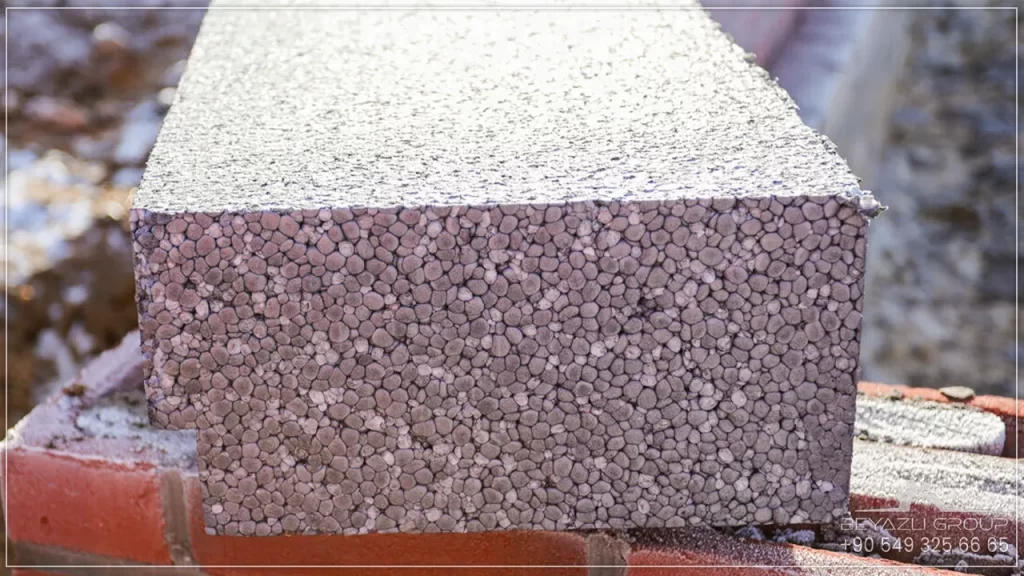
Grasscrete
Grasscrete is a type of paving system that combines concrete and plant life to create a sustainable and environmentally friendly surface. It consists of a pattern of concrete blocks with open voids or gaps that allow grass or other ground cover to grow through them. This design allows for water absorption, reducing runoff and promoting natural drainage, while also providing a stable surface for pedestrian or traffic.
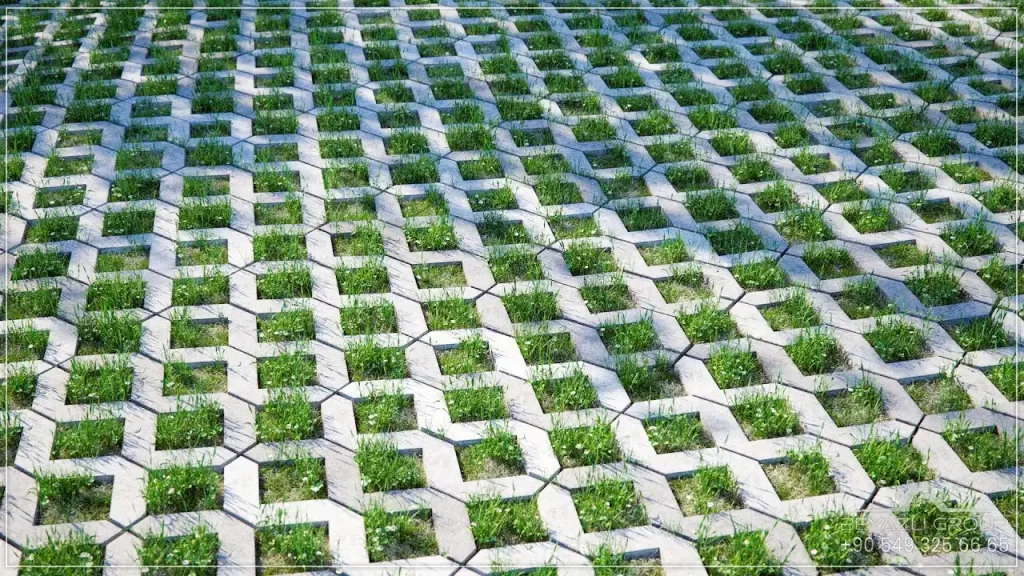
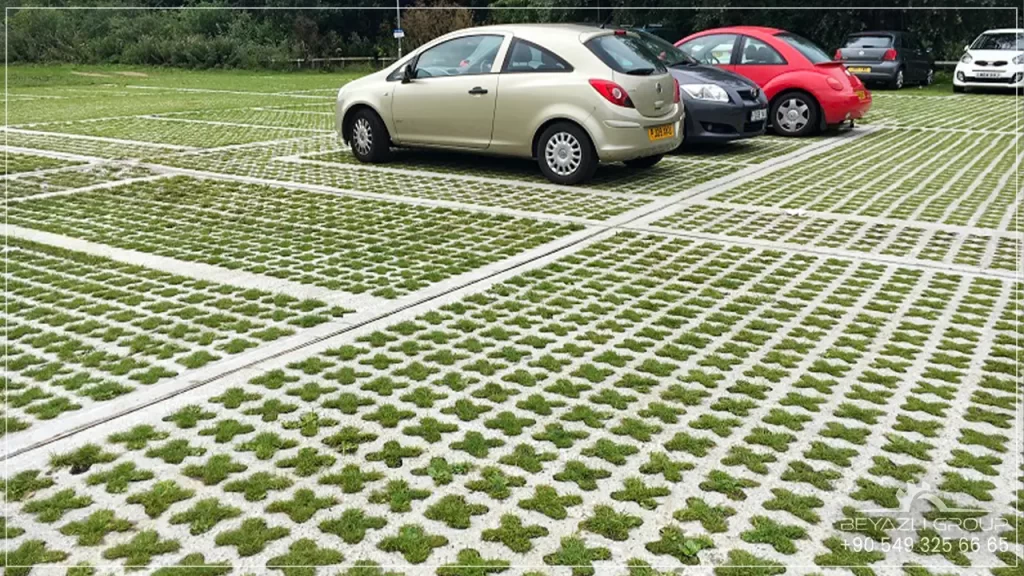
Hollow Floor Blocks (Asmolen)
A hollow floor block, also known as an “asmolen” is a type of construction material used in floor and ceiling systems, particularly in reinforced concrete slab construction. These blocks are made from concrete and they are characterized by their hollow interiors, which make them lighter and more efficient for building purposes.
These blocks are very common these days in multi-story buildings because of their easy use and mass production through concrete block machines.
Rain Gutters
A concrete rain gutter is a block made by concrete block machines to create a channel that is designed to collect and direct rainwater away from buildings, roads, and other structures. These gutters are an essential part of drainage systems, helping to prevent water damage, erosion, and flooding by efficiently managing stormwater runoff.
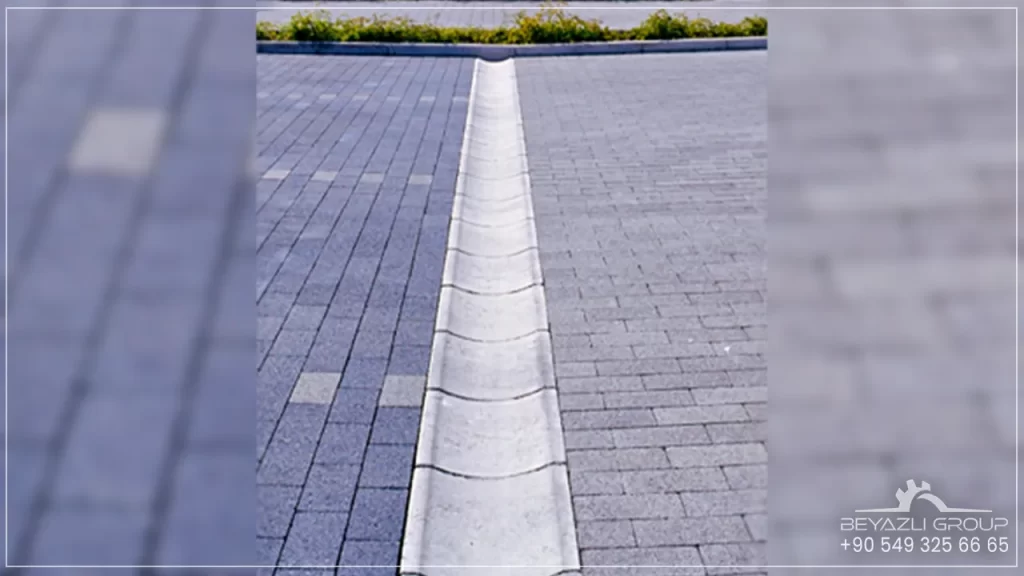
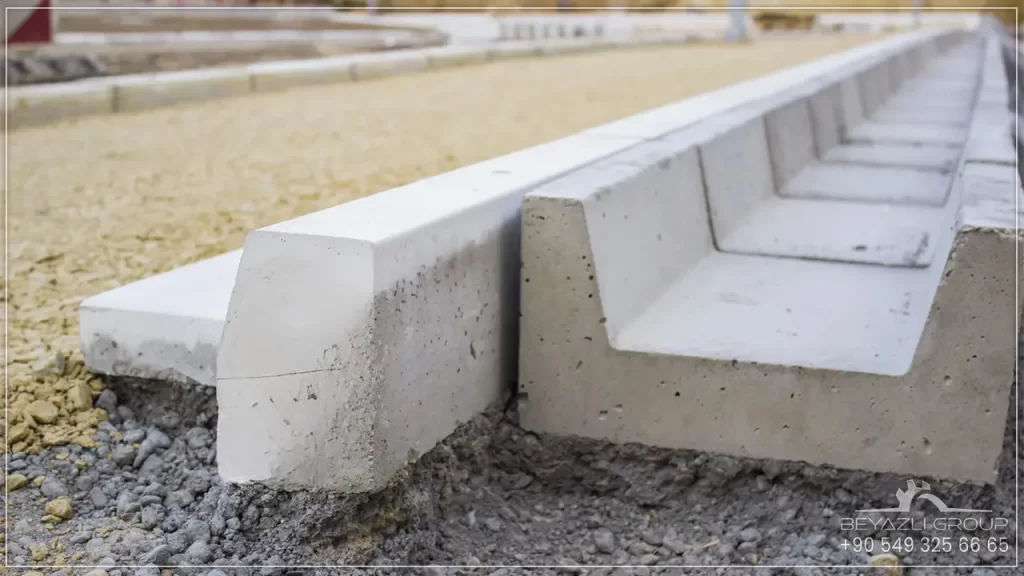
Chimney Blocks
Chimney blocks, also known as chimney flue blocks or flue liners, are specialized building materials used to construct the inner lining of a chimney.
Typically made from precast concrete, these blocks provide a durable and heat-resistant passage for smoke and gases to exit a building. They help ensure safe and efficient venting of gas while protecting the surrounding structure from heat and fire hazards making them a crucial component in both residential and commercial heating systems.
Special Design Concrete Blocks
There are many types of interlocking blocks in the market that are designed for special purposes.
For example, there are Lego blocks, interlocking blocks, rough surface blocks, or even new shapes that are done for the first time.
Bess concrete block machines can produce any type of block with a height ranging from 5cm to 35cm.
Below are a few pictures of the special design blocks produced by our concrete block machines.

